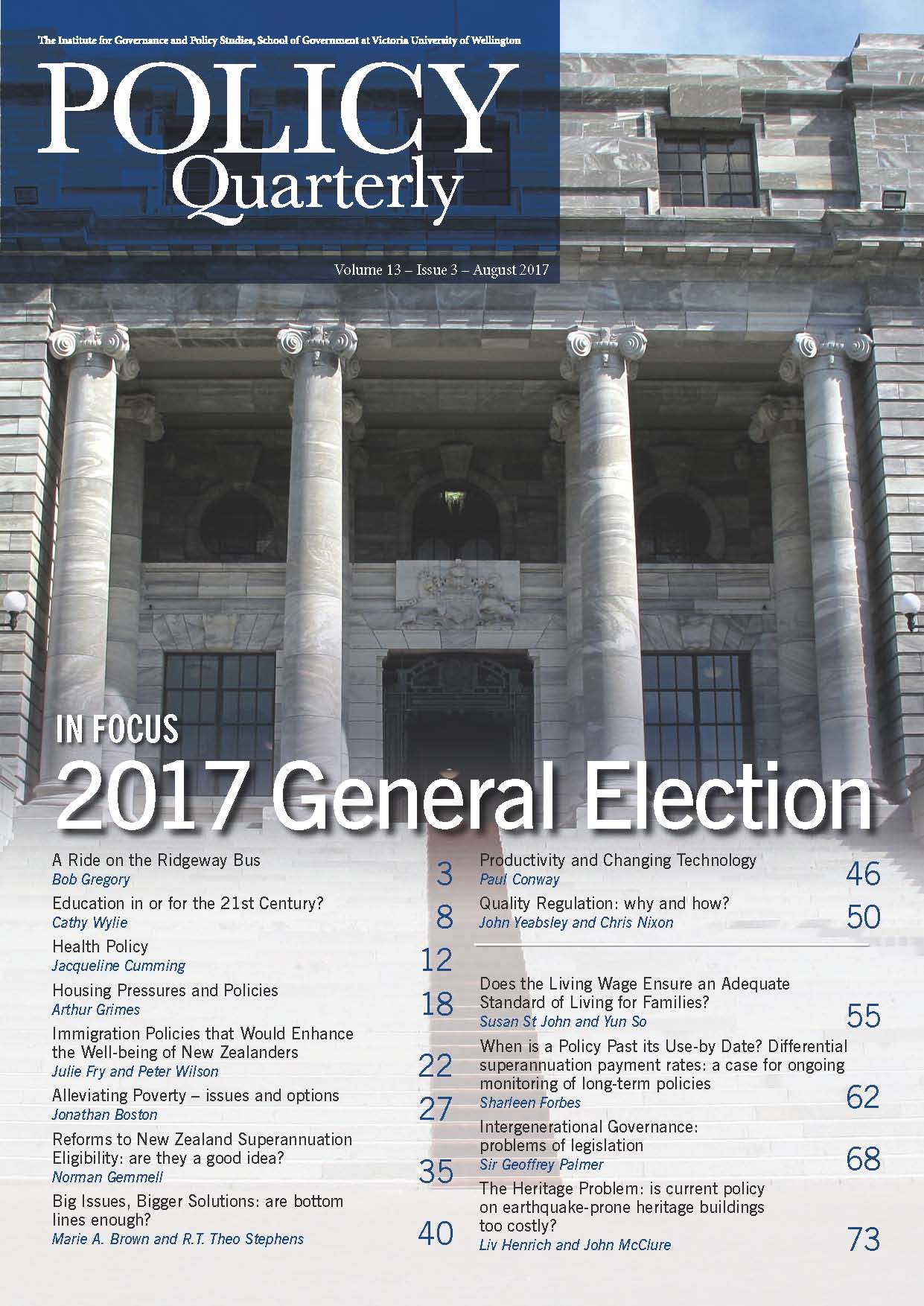Health policy
DOI:
https://doi.org/10.26686/pq.v13i3.4676Keywords:
health care system, health and well-being, health and well-beinghealth expenditure trends, Primary Health Care Strategy, Systems Level Measures performance framework, district health boardsAbstract
Improving health and well-being and promoting equity in outcomes are long-standing goals of New Zealand governments (for example, Department of Health, 1989; King, 2000; Ryall, 2007; Ministry of Health, 2016a, 2016b).1 New Zealand’s publicly funded health system delivers millions of high-quality services each year to achieve these goals. Our level of expenditure per capita on health care is slightly below the OECD average, but our health care system provides good overall health outcomes for the money we spend (OECD, 2015). Both our life expectancy and health expectancy (the years we live in good health) are increasing, although the former is increasing faster than the latter, leading to an increase in the number of years New Zealanders spend in poorer health; a key challenge is to improve our quality of life as people age (Ministry of Health, 2017a). Sadly, however, there are significant inequities in health, with Mäori, Pasifika and lower-income people having poorer health than other New Zealanders.
Downloads
Downloads
Published
Issue
Section
License
Permission: In the interest of promoting debate and wider dissemination, the IGPS encourages use of all or part of the articles appearing in PQ, where there is no element of commercial gain. Appropriate acknowledgement of both author and source should be made in all cases. Please direct requests for permission to reprint articles from this publication to Policy-Quarterly@vuw.ac.nz.



